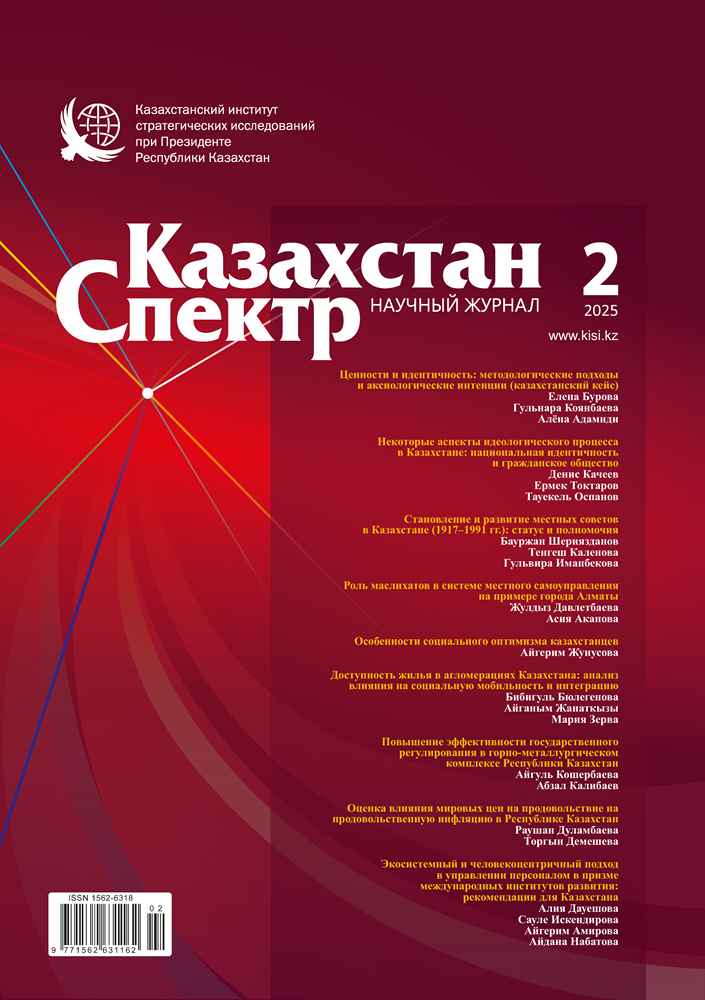Abstract
Food inflation in Kazakhstan is a complex and multifactorial issue, with one of its key aspects being dependence on import prices. Given that a significant share of food products in the country is imported, analyzing the impact of global prices on the domestic food market is a critically important task for ensuring food security and price stability.
This study assesses the impact of global food prices on food inflation in the Republic of Kazakhstan. The analytical part of the research was conducted in two stages using correlation-regression analysis and time series analysis, respectively. The findings are based on data processing over a time lag from 2000 to 2024. The first stage relied on monthly data (a total of 300 observations), while the second stage involved modeling three time series, selecting key influencing events (financial crisis, oil price collapse, pandemic).
The study revealed that global food prices have a direct impact on food inflation in the country. Furthermore, it was substantiated that the effect of global prices on inflation levels intensifies during periods of global instability.
The volatility of global food prices necessitates continuous monitoring of their impact on domestic prices and the adoption of well-grounded measures to curb inflation.
The findings suggest the necessity of differentiating goods based on production channels—domestic and imported production—and revising the existing methodology for calculating imported food inflation.

This work is licensed under a Creative Commons Attribution 4.0 International License.
Copyright (c) 2025 Kazakhstan-Spectrum


